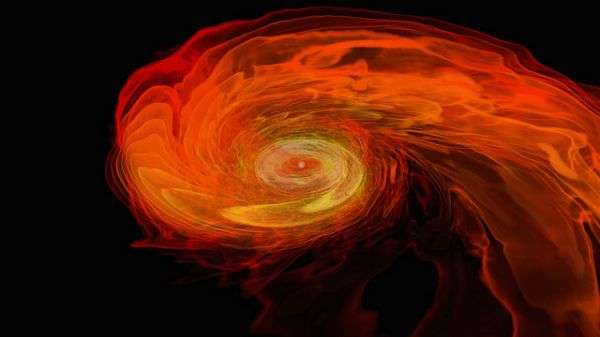These waves carry vital information about their origin and about the nature of gravity itself, so their detection will create an entirely new form of astronomical study.
UWA researchers have developed an electronic 'ear' that will vastly improve the ongoing international search for elusive gravitational waves, which are created by violent cosmic events throughout the universe.
Scientists have been hoping to detect these waves—first predicted by Albert Einstein's Theory of General Relativity in 1916—using the Laser Interferometer Gravitational-Wave Observatories (LIGO) in the USA.
Each observatory comprises a pair of L-shaped vacuum systems, four kilometres long with mirrors at each end, along which laser beams are fired.
The theory behind LIGO is that a gravitational wave would affect each leg differently thereby creating a measurable change.
The 'ear' takes the form of software and means scientists can listen in for anomalies picked up by LIGO in real time, instead of the weeks or even months it has previously taken to sift through the data.
The software picks out and adds up the pattern of frequency changes in the same way the human brain takes signals from hair cells in the cochlea and creates pattern recognition for all the complex sounds we hear.
The LIGO detectors operate in the frequency range of 10Hz to 3KHz.
The vibrations concerned are a few parts in 1020, which is about 100,000 times smaller than a proton.
When detected, each signal will be like a chirp—a rapidly rising tone a bit like an ambulance siren— so can be instantly identified and reported
If the same signal is identified in two or more detectors, it will constitute evidence of a gravitational wave.
Computer game processing power aids search
The idea for the 'ear' came from work done by Professor Yanbei Chen at the California Institute of Technology, but was made into a working system by UWA Professor Linqing Wen and his team of three PhD students.
UWA Winthrop Professor David Blair says: "the system is installed in a computer graphics card, so we have benefited from the enormous processing power developed for computer games."
To be effective the sensitive instruments have to be shielded against nearby noises, from earthquakes anywhere on Earth to scientists riding bicycles on the LIGO site.
Only when these noises are neutralised can LIGO hope to detect the incredibly small vibration caused by gravitational waves from supernovae or colliding black holes coming from many light years away.
These waves carry vital information about their origin and about the nature of gravity itself, so their detection will create an entirely new form of astronomical study.
Provided by Science Network WA
This article first appeared on ScienceNetwork Western Australia a science news website based at Scitech.
























